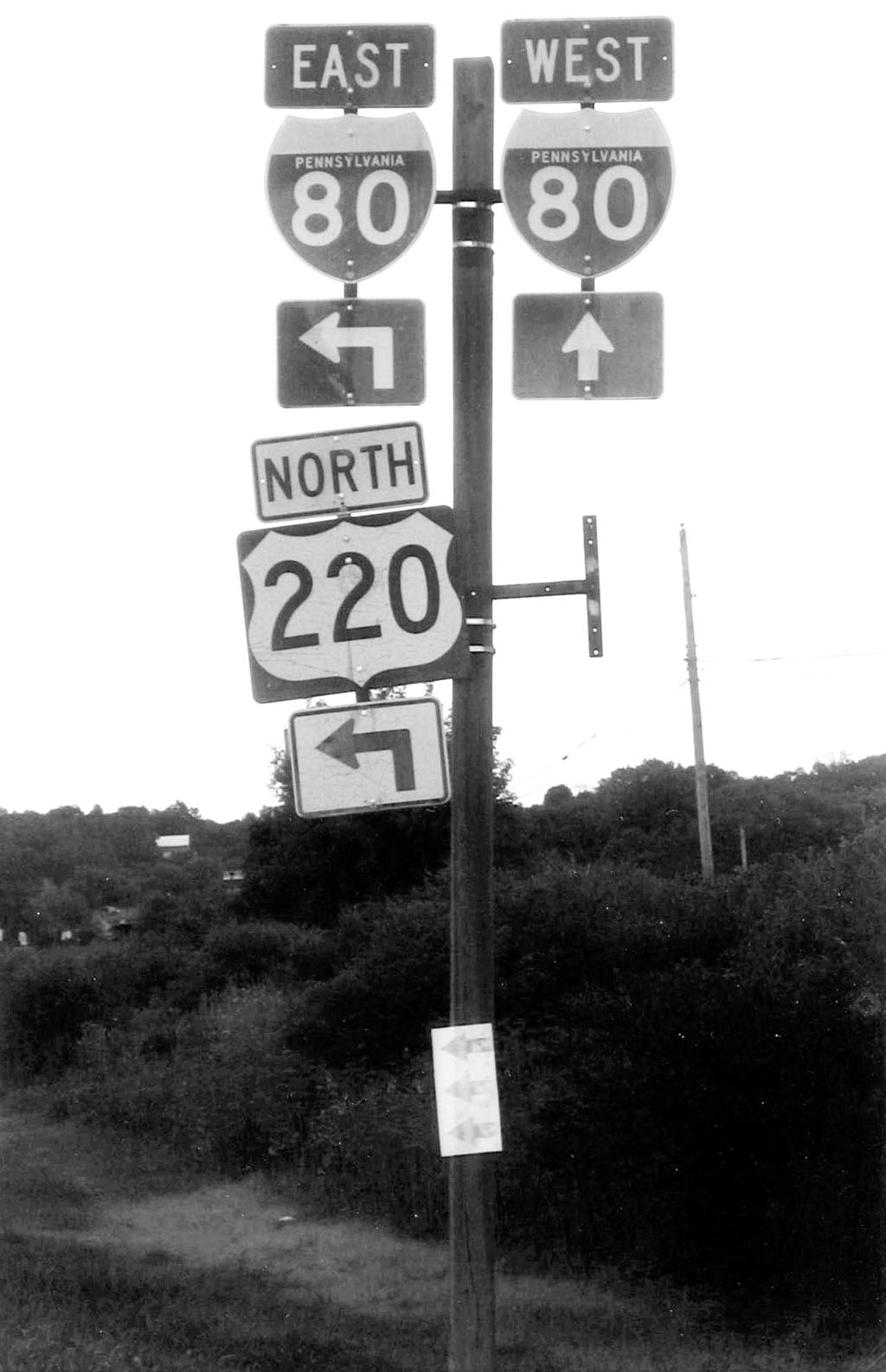28-01-12 // NON-URBAN EROTIC SPACES – INTERVIEW WITH SCOTT HERRING

I-80/Route 220 signpost in rural Pennsylvania, ©Scott Herring
Bernd Upmeyer spoke on behalf of MONU with Scott Herring. Herring is an Associate Professor in the Department of English, an Affiliate with the Department of Gender Studies, and an Adjunct in the Department of American Studies at Indiana University. He is the author of the Lambda Literary Award-winning book “Another Country: Queer Anti-Urbanism”, which tracks how rural American queers have responded to a myopic mindset of urbanism and offers a theory of queer anti-urbanism that refuses to dismiss the rural as a cultural backwater. The interview took place on January 28, 2012.
Bernd Upmeyer: In your recent book “Another Country: Queer Anti-Urbanism” you criticize the common urban narrative that distinguishes clearly between the urban and the non-urban. Could you elaborate that critique a bit for us?
Scott Herring: The book discusses gender and sexuality studies—specifically queer studies—across the twentieth and twenty-first century United States as the field relates to questions of non-urbanism, anti-urbanism, and urban formations. I was most curious to think about a longstanding urbanist bias in gay communities that tends to structure thinking about the rural as well. Part of this bias announces itself as a ‘flight to the city’ narrative that presumes non-metropolitan gays should move to the city because of its promise of a fuller, richer life. By proxy, rural environments are stereotyped as somehow more isolated or lonely. My primary aim with this book was to counteract this stereotype of the rural as a space of cultural poverty for lesbians and gays, and so I looked to non-urban queer spaces as sites of cultural richness and resistance.
BU: Where do you think lay those potentials of the supposedly backward, rustic, and unfashionable non-urban areas? In which way is the countryside subversive? What kind of life is possible in the countryside that is not sustainable in dense urban areas?
SH: Everywhere, frankly. I think that when one talks about erotic acts for queer populations, there is an assumption that it is easier in cities to initiate contact. But social historians have shown that it wasn’t that difficult for rural lesbians and gays to have rich erotic lives as well as intense social networks. So on the one hand I trace how rural lesbian and gays developed erotic worlds in, say, the 1920s and in the 1970s. On the other hand, I wanted to contradict the idea that the rural is a space without cultural possibilities by concentrating on acts of what I call aesthetic metro-subversion. As someone who grew up outside of a metropolitan area in the US south, and also as someone who currently lives outside of a major metropolitan area in the state of Indiana, I was curious to trace moments in literature, painting, and performance that had no interest in confirming the urbanity of lesbian and gay life in the modern US. I wanted to attend to these individuals who play with stereotypes of the rural as rustic and backward, and who engage in extraordinarily rich cultural practices across genres…
…the complete interview was published in MONU #16 on the topic of Non-Urbanism on April 17, 2012.
Title: Non-Urban Erotic Spaces
Project: Interview with Scott Herring
Date: April 2012
Type: Commissioned interview
Topic: Non-Urbanism
Organizer: MONU
Status: Published
Publications: MONU #16, P.97-103
Interviewer: Bernd Upmeyer